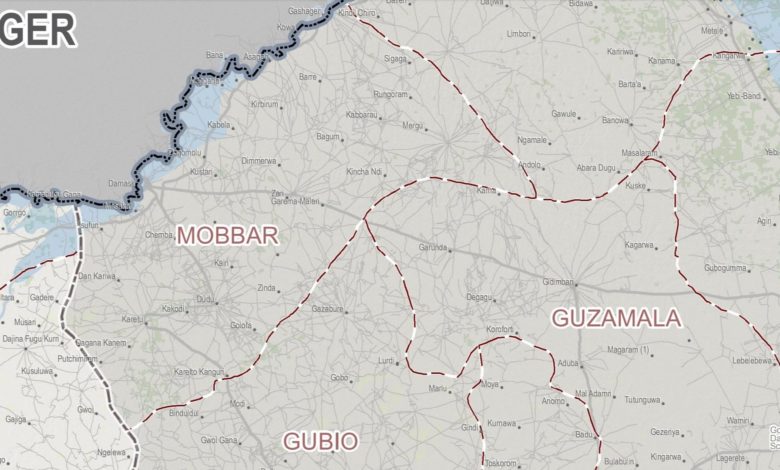ISWAP Abducts State Officials In Borno

Islamic State West Africa (ISWAP), a splinter faction of Boko Haram have abducted five employees of Borno State Ministry of Reconstruction, Rehabilitation and Resettlement, a local government worker and another civilian.
Information available to HumAngle on Sunday indicated that the victims were intercepted and abducted by ISWAP fighters at a checkpoint along Damasak road in Borno State some 200km of the state capital, Maiduguri.
A day after the abduction on September 11, Borno State Governor, Babagana Zulum, visited displaced persons in Damasak, the headquarters of Mobar Local Government Area, HumAngle further learnt.
A Boko Haram attack in November, 2014 on the town of Damasak left 50 people dead and forced at least 3,000 to flee to the state of Diffa in the neighbouring Republic of Niger.
On July 18, 2019, six Action Against Hunger employees were abducted along Damasak road. The captors killed one of their victims on September 25 of the same year and killed four others on December 13, 2019, while the only woman on the team, Grace Taku, remains in captivity.
In July, 2020, ISWAP killed humanitarian workers abducted along Monguno – Maiduguri road in Borno State.
Daily Trust newspaper initially reported the group was demanding 500,000 dollars for the release of the victims who worked for Borno State Emergency Management Agency (SEMA), and the Action Against Hunger, Rich International, International Rescue Committee, and a private security company, providing security in a humanitarian facility in Monguno town.
In January, ISWAP freed five aid workers who were abducted in December, 2019.
HumAngle contacted the Borno State government spokesman Isa Gusau for comments on the situation but he replied that he would find out about it.
HumAngle learnt that some of the state government RRR and SEMA workers were casual workers. Casual staff in northeastern Nigeria face more risks than their counterparts working permanently for government or humanitarian organisations.
In December, 2019, the United Nations Humanitarian Coordinator in Nigeria, Edward Kallon, expressed concern over the increasing number of checkpoints set up by non-state armed groups along main supply routes in the states of Borno and Yobe.
“These checkpoints expose civilians and humanitarians to heightened risks of being killed or abducted,” he said.
Support Our Journalism
There are millions of ordinary people affected by conflict in Africa whose stories are missing in the mainstream media. HumAngle is determined to tell those challenging and under-reported stories, hoping that the people impacted by these conflicts will find the safety and security they deserve.
To ensure that we continue to provide public service coverage, we have a small favour to ask you. We want you to be part of our journalistic endeavour by contributing a token to us.
Your donation will further promote a robust, free, and independent media.
Donate HereStay Closer To The Stories That Matter




